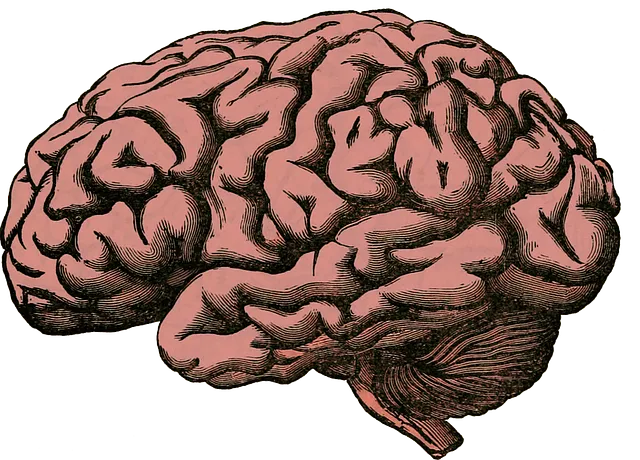Kaiser Permanente mental health locations in Northglenn face challenges in accurately diagnosing mental health conditions, leading to initiatives focusing on advanced training for healthcare professionals, integrating AI tools, and promoting Mental Health Policy Analysis and Advocacy. They emphasize depression prevention through self-awareness exercises and leverage digital tools for detailed progress tracking. Cultural sensitivity is key, with personalized assessments and interventions tailored to individual patients' contexts. Integrated strategies like Stress Management Workshops and online assessments improve diagnosis accuracy, reduce stigma, and promote overall well-being through evidence-based practices and patient-centric care.
Mental illness diagnosis accuracy is a critical aspect of patient care, and continuous improvement efforts are essential in healthcare organizations like Kaiser Permanente. This article explores strategies to enhance diagnosis precision at Kaiser Permanente Northglenn locations. We delve into understanding common misdiagnoses, enhancing assessment techniques with innovative methods, and the role of advanced training and technology integration. Additionally, we highlight the significance of patient-centric care environments for accurate mental health evaluations within this leading healthcare provider.
- Understanding the Challenge: Uncovering Misdiagnoses in Mental Health at Kaiser Permanente Northglenn Locations
- Enhancing Assessment Techniques: Innovative Approaches to Improve Diagnosis Accuracy
- Training and Education: Equipping Clinicians with Advanced Knowledge for Better Mental Illness Identification
- Integrating Technology: Digital Tools Revolutionizing Mental Health Diagnosis at Kaiser Permanente
- Patient-Centric Care: Creating Supportive Environments for Accurate Mental Illness Evaluations
Understanding the Challenge: Uncovering Misdiagnoses in Mental Health at Kaiser Permanente Northglenn Locations

At Kaiser Permanente Northglenn locations, the challenge of accurately diagnosing mental health conditions is a pressing issue that demands attention. Misdiagnoses are common, leading to inadequate treatment and potential exacerbation of symptoms for patients. A thorough understanding of this problem requires a deep dive into the complex interplay between human error, clinical variability, and the dynamic nature of mental health disorders.
Kaiser Permanente, recognising the urgency, has initiated several efforts aimed at improving diagnosis accuracy. These initiatives include implementing advanced training programs for healthcare professionals, integrating innovative tools like artificial intelligence to aid in assessment, and promoting a culture of ongoing Mental Health Policy Analysis and Advocacy. Additionally, Depression Prevention strategies are being emphasised through Self-Awareness Exercises, empowering both patients and providers to recognise subtle signs and symptoms early on.
Enhancing Assessment Techniques: Innovative Approaches to Improve Diagnosis Accuracy

Mental health professionals at Kaiser Permanente mental health locations Northglenn are constantly refining assessment techniques to enhance diagnosis accuracy. This involves integrating innovative approaches that go beyond traditional methods, such as leveraging advanced technology for more comprehensive data analysis and incorporating diverse therapeutic modalities. For instance, digital tools allow for detailed tracking of patient progress over time, enabling practitioners to identify subtle patterns indicative of specific mental health conditions.
Additionally, prioritizing cultural sensitivity in mental healthcare practice plays a pivotal role in accurate diagnosis. By understanding the unique cultural contexts of individual patients, healthcare providers can tailor their assessments and interventions effectively. This personalized approach complements existing strategies, including Stress Management Workshops organized by Kaiser Permanente, which empower individuals with tools to foster positive thinking and cope with stress. These integrated efforts collectively contribute to more precise mental illness diagnosis and improved patient outcomes at Kaiser Permanente Northglenn.
Training and Education: Equipping Clinicians with Advanced Knowledge for Better Mental Illness Identification

At Kaiser Permanente mental health locations Northglenn, significant efforts are underway to enhance the accuracy of mental illness diagnoses. One key strategy involves comprehensive training and education programs designed to equip clinicians with advanced knowledge and skills. These initiatives focus on staying abreast of the latest research, treatment modalities, and clinical practices specific to various mental health conditions.
Through workshops, webinars, and ongoing professional development, healthcare providers gain insights into complex presenting symptoms, subtle differences between disorders, and unique patient populations. Additionally, these educational programs delve into Mental Illness Stigma Reduction Efforts, fostering a more compassionate and understanding environment. By promoting Inner Strength Development and encouraging Positive Thinking, the overall goal is to improve diagnostic accuracy while empowering both clinicians and patients on their journeys towards mental well-being.
Integrating Technology: Digital Tools Revolutionizing Mental Health Diagnosis at Kaiser Permanente

At Kaiser Permanente mental health locations in Northglenn, technology integration has revolutionized diagnosis and treatment. Digital tools like online assessments, artificial intelligence (AI) algorithms, and virtual reality (VR) therapy sessions are enhancing accuracy and accessibility. Online assessments provide initial screening and risk factor evaluations, allowing for early intervention. AI algorithms analyze data to identify patterns indicative of specific mental health conditions, improving diagnostic precision.
Moreover, VR therapy offers immersive experiences that simulate real-world scenarios, aiding in exposure therapy for anxiety disorders and post-traumatic stress disorder (PTSD). The Crisis Intervention Guidance accessible through these platforms empowers individuals to handle acute crises more effectively. In addition, the Mental Health Policy Analysis and Advocacy being implemented ensures evidence-based practices are upheld, while the Mental Wellness Podcast Series Production provides community education on mental health topics, fostering open dialogue.
Patient-Centric Care: Creating Supportive Environments for Accurate Mental Illness Evaluations

At Kaiser Permanente mental health locations Northglenn, patient-centric care is a cornerstone of their approach to improve mental illness diagnosis accuracy. This means creating supportive and non-judgmental environments where patients feel safe to share their experiences and symptoms openly. A key strategy involves fostering strong doctor-patient relationships built on trust, active listening, and empathy. By understanding each patient’s unique background, cultural context, and personal struggles, healthcare professionals can tailor evaluations, ensuring a more accurate diagnosis.
Community outreach programs play a vital role in this process. Such initiatives engage with at-risk populations, promoting mental health awareness and encouraging early intervention. Additionally, self-esteem improvement workshops and support groups facilitate open dialogue, helping patients develop coping mechanisms and build resilience. Furthermore, risk management planning for mental health professionals is essential to ensure staff are equipped to handle sensitive cases effectively while prioritizing patient safety and well-being.
Efforts to improve mental illness diagnosis accuracy, as highlighted by Kaiser Permanente’s initiatives at its Northglenn locations, are multifaceted. From understanding the nuances of misdiagnosis to leveraging innovative assessment techniques, advanced training, technology integration, and patient-centric care, these strategies collectively aim to ensure more precise and timely identification of mental health conditions. By continually enhancing these approaches, Kaiser Permanente is not only improving patient outcomes but also fostering a more supportive and effective mental health care ecosystem within its Northglenn locations and potentially beyond.






